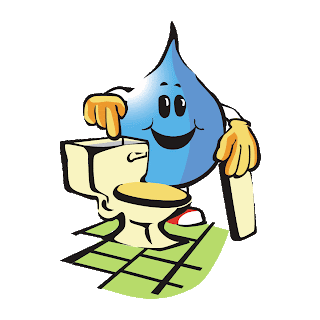 When you wash your car at home dirt, oil, and grease gets washed away with the detergent. This polluted water then flows from the street and into nearby storm drains. Car washing detergents are rich in pollutants, such as nutrients, metals and hydrocarbons that need to be treated at our wastewater treatment facilities.
When you wash your car at home dirt, oil, and grease gets washed away with the detergent. This polluted water then flows from the street and into nearby storm drains. Car washing detergents are rich in pollutants, such as nutrients, metals and hydrocarbons that need to be treated at our wastewater treatment facilities.Did you know that most commercial car washes are required to treat their wash water and often recycle their water for multiple washes? Ultimately saving water!
Next time your car needs a wash; think about taking it to a commercial car wash instead of washing pollutants down the drain. This will help conserve water, wastewater run-off, and divert the harmful effects untreated wastewater has on the environment.







